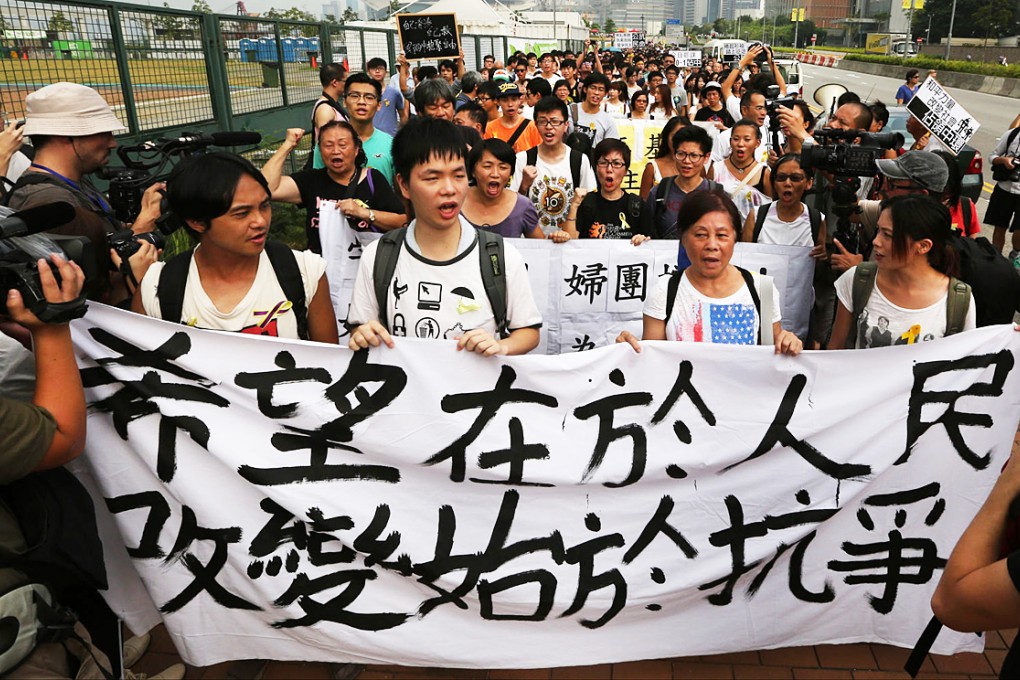Update | Striking students march through Central as police say protest is illegal
Students taking part in a pro-democracy class boycott did not seek police permission before setting out on a march from Tamar Park in Admiralty through Central and back to Admiralty.

Students taking part in a pro-democracy class boycott have completed a march from Tamar Park in Admiralty through Central and back to Admiralty.
The Federation of Students said about 500 striking students and other activists took part in the march.
The federation’s secretary general Alex Chow Yong-kang said the group had not applied for permission from police for the event, but indicated the action would be peaceful.
Watch: What do spectators think about striking students' march
The march marks one of Hong Kong's first acts of civil disobedience relating to Beijing's electoral reform proposal, since Occupy Central leader Benny Tai declared on August 31 that the 'era of disobedience' had begun.